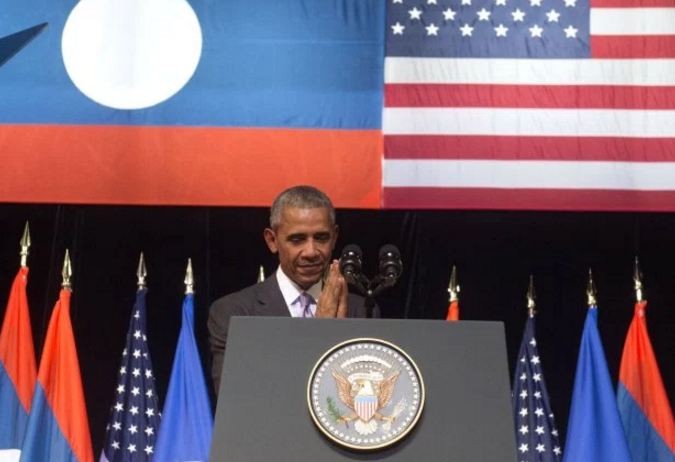With only three months before he steps down, U.S. President Barack Obama has reassured its Asian allies of the United States' commitment to the region, especially militarily, in the face of unwarranted Chinese aggressiveness undiminished by an international court ruling dismissing China's nine-dash line claim.
Obama said the U.S is "here to stay" in Asia as he emphasized his country's commitment to remain in Asia, which was made inevitable by his "Pivot to East Asia" regional strategy announced in 2012. The pivot encompasses a region identified as East Asia by the U.S. This region includes China, Southeast Asia and the Pacific Islands.
The pivot's key areas of actions include strengthening bilateral security alliances; deepening working relationships with emerging powers (including with China); engaging with regional multilateral institutions; expanding trade and investment; forging a broad-based military presence and advancing democracy and human rights.
Obama made the pledge America's next President will stand with Asia on his final visit to Asia as US President. He was at the Laotian capital of Vientiane to attend a meeting of ASEAN or the Association of Southeast Asian Nations. Obama is the first American president to ever visit Laos.
"America's interest in the Asia-Pacific is not new," said Obama. "It's not a passing fad. It reflects fundamental national interests."
In his 11th and last trip to the Asia-Pacific, Obama sought to cement the pivot that has been a hallmark of his eight-year administration. He explained the pivot further in his trip to Laos.
"As president, a key priority of my foreign policy has been to deepen our engagement with the nations and peoples of the Asia-Pacific," he said, adding that he remained "confident" the new engagement would last.
Obama noted increased military cooperation with countries such as the Philippines, Singapore and India.
"We are here to stay. In good times and bad, you can count on the United States of America," said Obama.
Obama then noted the elements of his pivot. These included deploying a rotational force of Marines to Australia; the THAAD missile defense system to protect South Korea from North Korean missiles, and a stronger American voice in regional issues like the disputes between China and its neighbors over the East China Sea and the South China Sea.
"The bottom line is this," said Obama. "Today, the United States is more deeply engaged across the Asia Pacific than we have been in decades. Our position is stronger. We've sent a clear message that, as a Pacific nation, we are here to stay."
He said the U.S. "welcomes the rise of a China that is peaceful, stable and prosperous and a responsible player in global affairs because we believe that will benefit all of us."
He did, however, say China must abide by international rules and not push its weight around.
"Across the region, including in the East and South China Seas, the United States will continue to fly, sail and operate wherever international law allows and support the right of all countries to do the same."



























